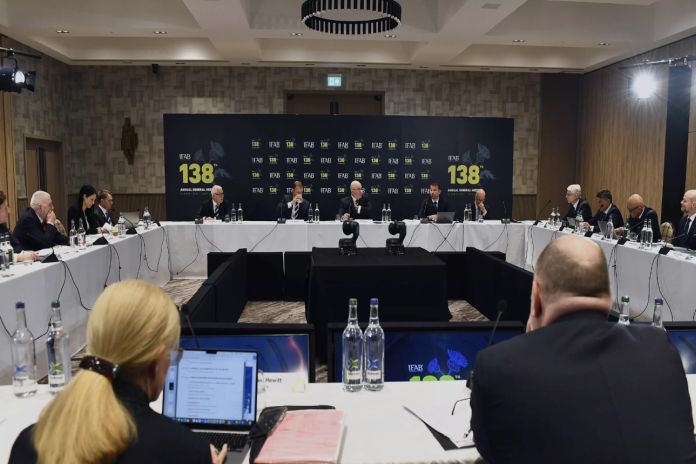- Suspect and Protect will highlight risks of concussion and provide educational resources for everyone involved at every level of football
- Knowing the signs and symptoms of suspected concussion and how to protect players can help to make the game safer for all
- Global campaign is launched in partnership with the World Health Organization (WHO) and supported by FIFA Member Associations
GENEVA, Switzerland – In line with the Strategic Objectives for the Global Game: 2023–2027 and following on from the announcement at the IFAB AGM in March 2024, FIFA is launching Suspect and Protect: No Match is Worth the Risk, a concussion awareness campaign, in partnership with the World Health Organization (WHO).
The campaign aims to raise awareness of the fact that concussion is a traumatic brain injury and is a risk to every player on the pitch. It has been endorsed by players, coaches and team doctors from around the world.
Developed through extensive consultation with FIFA Medical and WHO brain health experts, the Suspect and Protect campaign aims to increase sign and symptom recognition among players, coaches and medical staff, as well as the general public. The campaign highlights that symptoms may take up to 72 hours to appear and offers guidance on how to return to play safely following a suspected or confirmed concussion. These tailored resources are designed to empower national team stakeholders, professional clubs and leagues and grassroots and amateur communities.
Suspect and Protect will be delivered at a global level across FIFA channels, while toolkits are being distributed to the 211 FIFA Member Associations for delivery at a national, regional and local level.
“Concussion is a brain injury and should always be taken seriously. Playing football should be something enjoyed safely, by everyone, everywhere,” FIFA President Gianni Infantino said. “By knowing the signs of concussion, by being aware of the risks, and by treating a concussion correctly, you can help to put player safety first.
“A big thank you to FIFA’s member associations for their efforts in launching with us and for following the advice provided by our colleagues at the World Health Organization.”
“Concussion is a public health issue of concern at all levels of football, and many other sports, requiring greater levels of awareness and action,” said Dr Tedros Adhanom Ghebreyesus, WHO director-general. “That is why WHO is proud to team up with FIFA on the Suspect and Protect campaign to promote ways to protect the brains of footballers, young and old, around the world from the risks of concussion.”
The campaign is built upon three main action points for audiences within national teams, professional clubs and leagues and amateur and grassroots communities.
Be Aware: Whether a player, coach, team doctor, parent or carer, it is important to understand that concussion is a traumatic brain injury and should always be taken seriously. Everyone should know the common signs of concussion as well as when to seek urgent medical advice.
Suspect: Anyone who sustains a direct or indirect impact to their head, face, neck or body, should be assessed for concussion symptoms. Symptoms may take up to 72 hours to present. They include headache or ‘pressure’ sensation, nausea or vomiting, problems with balance, dizziness or being unsteady on feet, distorted/blurry or double vision, sensitivity to light and/or noise, memory problems (difficulty recalling the traumatic event, and/or events before or after), feeling drowsy, confused or unable to focus, sleep problems.
Protect: Anyone presenting with one or more concussion symptoms should leave the pitch immediately. A doctor must be seen as soon as possible and within 24 hours. The symptoms of a concussion can change or evolve within the minutes, hours, days and even weeks after the traumatic event. Some symptoms require urgent medical attention. Players should follow medical guidance on return to play. No match is worth the risk.





